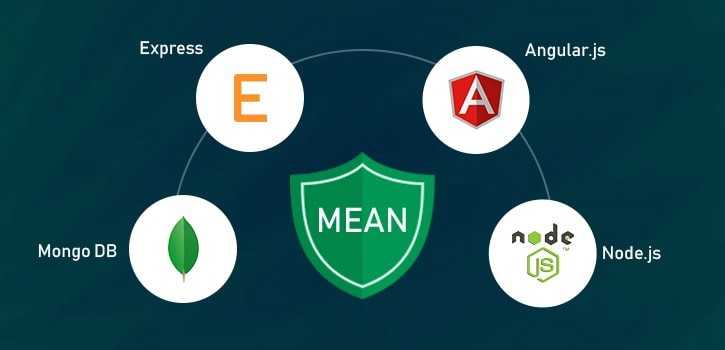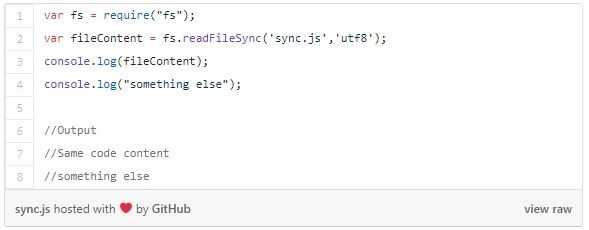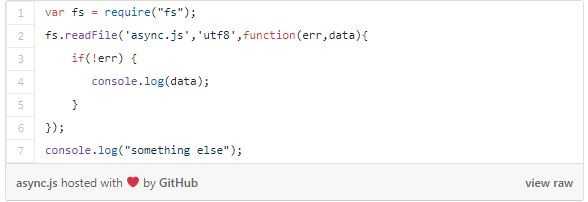JavaScript’s rising popularity has successfully brought in a lot of changes to the face of web development. The things possible with JavaScript running on the server and the browser were harder to imagine several years back. Especially when sandboxed environments like flash or Java applets were popular.
Node.js shines in real-time web applications deploying push technology over web sockets. What is so revolutionary about that? After almost 20+ years of stateless-web based request-response paradigm, we have web applications with real-time, two-way connections where both the client and server can communicate and exchange data freely.
Well, this is one reason for this massive acceptance of Node.js for e-commerce development as developing an e-commerce store is a daunting task. Selecting a back-end development technology for an e-commerce website can be one of the significant decisions any developer has to take. An e-commerce store must be user-friendly and competitive at the same time and must have the ability to adapt to the latest technologies.
While the benefits of Node.js are countless, in this article, we will discuss 5 reasons why node.js is the best framework to build an e-commerce marketplace.
What is node.js?
Node.js is an application runtime environment which allows you to write server-side applications in JavaScript. If you dig into its history, Node.js was initially written by Ryan Dahl in the year 2009. The initial release was supported by Mac OS X and Linux alone. While node.js is the standard filename extension of JavaScript code, it doesn’t refer to a particular file in this content. It is merely the name of the product.
Node.js is a packaged compilation of Google’s V8 JavaScript engine that is a widely used open source tool to develop server-side networking applications. Some of the popular brands using Node.js include Microsoft, Go daddy, Netflix, PayPal, LinkedIn, Walmart, Groupon, and Yahoo.
Why Node.js Is the Best Framework for e-commerce development
Some time ago, LAMP was the technology stack that was mostly preferred by developers. However, Node.js e-commerce development is in trend and it entices developers towards MEAN/MERN stack to create an array of e-commerce solutions.
PHP was the most popular and commonly used programming language and script. While comparing Python vs Node.JS, however, Node.js framework proved to be faster, versatile and scalable than a PHP framework. Let’s explore what makes a Node.js shopping cart special.
Leverages NoSQL database- Flexible and Fast
While other frameworks like PHP uses MySQL or other relational databases, Node.js uses NoSQL which is much faster than the former ones. Node.js is compatible with both SQL and NoSQL databases like Couch DB and MongoDB. It is also capable of executing queries from graph-based database systems like Neo4j. Its seamless compatibility with JSON (JavaScript Object notation) also makes it possible to work even without SQL. It is possible to execute the query without even switching between various database syntaxes while working for front-end and back-end entities. It uses the same syntax for web browser side, server-side and database side scripting.
MEAN stack uses MongoDB, a popular and flexible No SQL database. The components of MEAN stack are:
MongoDB (Database)
Express.js
Angular.js (client-side framework)
Node.js (server-side application framework)
Its database helps to keep the system responsive even under a heavy load. For example, updating the “likes” count on Facebook or logging of user-tracking data is queued through a caching infrastructure like ZeroMQ and later digested by a separate database batch.
Lightweight and resourceful- Making the end product scalable
Node.js comes with NPM, built-in support for managing packages; it’s a tool that comes by default with every node.js installation. It is a set of publicly available components that can be reused. It is available for easy installation through an online repository. The module ecosystem is open to all and anyone is free to publish their own module that is listed in the repository.
In short, node.js allows the developer to reuse the code from the online repository and this makes the whole project lightweight.
Some of the most used NPM modules are:
Socket.io & sockjs
Socket.io and sockjs are 2 common server-side web components.
Express.js
Express.js or simply express is a web development framework for node.js. Inspired by Sinatra, it is the de-facto standard for most of the node.js applications.
Connect
It is an extensible HTTP server framework for Node.js offering a complete set of high-performing plugins.
Hapi
A modular and easy to use configuration centric framework beneficial to build both web and server-side applications.
Asynchronous code compilation- Efficient and fast code execution
Node.js follows an asynchronous programming pattern that ensures non-blocking code execution. It means asynchronous code executes without having any order or dependency. This improves the efficiency of the system and throughput. Asynchronous programming is excellent for faster execution of programs.
For example, consider the following code where the file will be read first and then the code console.log () is executed.
But, in this code, asynchronous programming happens.
Here, the console.log () is executed first and then the file content. This is because the code is asynchronous and the event loop executes it later.
Contemporary code base
Old programming languages like PHP can be found easily on the internet and a number of e-commerce stores work on it. On the contrary, node.js is a new cutting edge technology equipped with contemporary tools for the new gen developers. It is competent enough to accommodate contemporary requirements. The MEAN stack has updated tools, the latest security methods, and a large library.
Cost effective and value for money
Node.js uses the same programming language for both client side and server side application development. This makes it easy for the same developer to switch roles while developing both applications. This flexibility for code repetition, not only saves money, but it also makes it easy to complete the project within a given time frame, in a cost-effective manner. The development cost is optimum as you don’t require two different teams of developers for front-end and back-end development.
Conclusion
Node.js e-commerce development improves the performance of your online store throughout the buying journey of customers. Choosing the right technology leads to the smooth development process that result in fast turnaround time and better conversions. Due to the large number of benefits it offers, this open source technology is supported by a massive community of skilled developers.
Node.js is not just an ideal choice for development; it is a future technology that is going to stay here for more to build e-commerce shopping carts. Hopefully, this article will help you to choose the best suitable technology for your project.

Jessica Bruce professional blogger, guest writer, Influencer & an eCommerce expert. Currently associated with ShopyGen as a content marketing strategist. I also report on the latest happenings and trends associated with the eCommerce industry.
Let’s Build Digital Excellence Together














